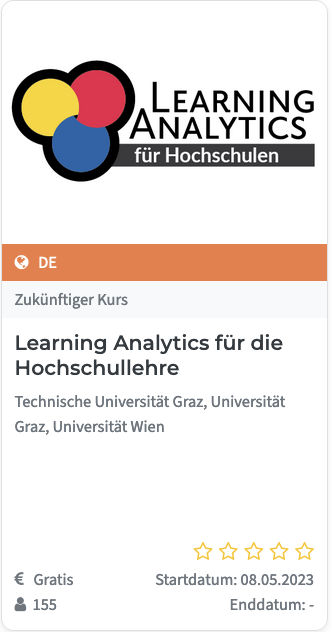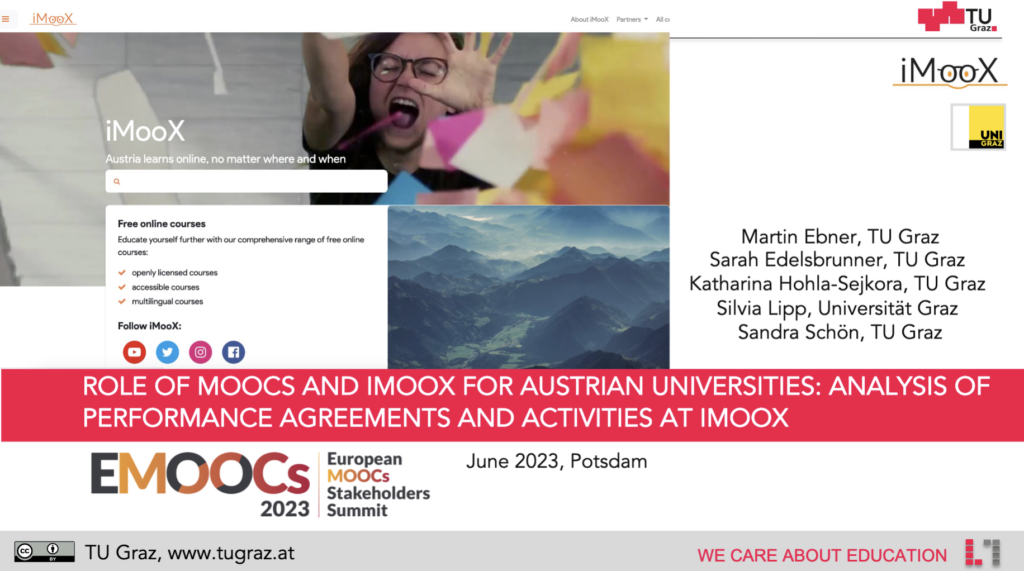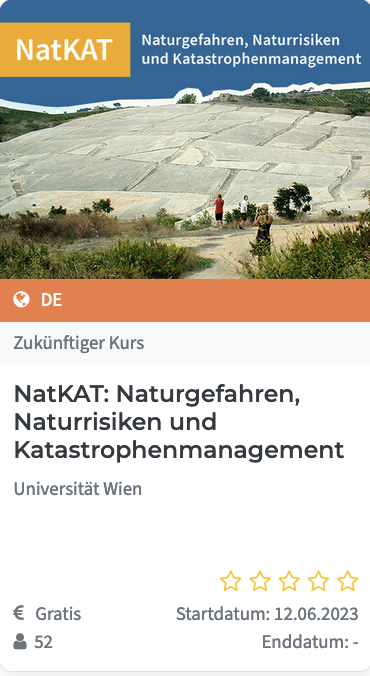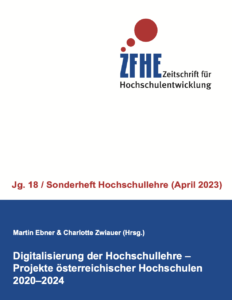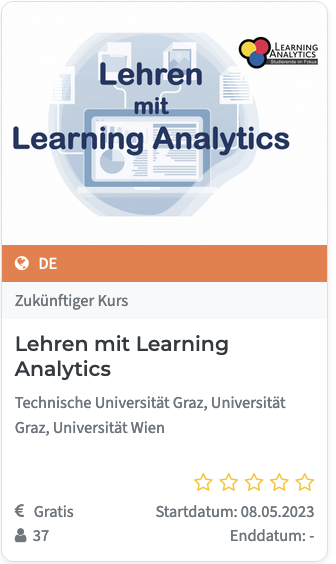In der Sonderausgabe zu „Digitalisierung der Hochschullehre – Projekte österreichischer Hochschulen 2020–2024“ haben wir unser Learning-Analytics-Projekt beschrieben.
Zusammenfassung:
Der Einsatz von Learning Analytics etabliert sich zunehmend an Hochschulen. Im Rahmen eines vom BMBWF kofinanzierten Projekts wurde sowohl auf Ebene der Lehrveranstaltung als auch auf Ebene des Studiums angesetzt. Tools und Qualifizierungsmaßnahmen wurden entwickelt, die Studierende und ihre Interessen ins Zentrum stellen. Das Projekt verfolgt somit einen studierendenzentrierten Ansatz, der Autonomie und Freiwilligkeit der Teilnahme in den Vordergrund rückt. An den drei beteiligten Universitäten wurden Dashboards, wie der Learner’s Corner sowie Begleitmaßnahmen (Mentoring, Tutorials, …) entwickelt und empirisch überprüft. Außerdem wurden ethische und datenschutzrechtliche Richtlinien im Rahmen eines interdisziplinär erarbeiteten Kriterienkatalogs entwickelt.
Im Beitrag wird der Einsatz von Learning-Analytics-Tools auf unterschiedlichen Ebenen (Moodle-Plug-ins, Anwendung zur Visualisierung des Studienfortschritts) anhand von aus dem Projekt ausgewählten Schwerpunkten exemplarisch veranschaulicht und einzelne empirische Ergebnisse werden vorgestellt.
[Artikel @ Zeitschrift für Hochschulentwicklung]
[Artikel @ ResearchGate]
Referenz: Bartok, L., Donner, M-T., Ebner, M., Gosch, N., Handle-Pfeiffer, D., Hummel, S., Kriegler-Kastelic, G., Leitner, P., Tang, T., Veljanova, H., Winter, C., & Zwiauer, C. (2023). Learning Analytics – Studierende im Fokus. Zeitschrift für Hochschulentwicklung , 18, 223-250. https://doi.org/10.3217/zfhe-SH-HL/12


